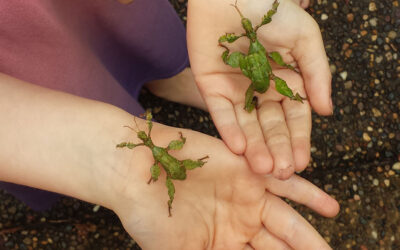Aah, your newborn is finally in your arms! We’ve got the lowdown on what to expect in the first few months – also known as the 4th trimester.
Why doesn’t my newborn look like the cherubs in the movies?
Yes, with their scrunched up faces, flakey skin and misshapen heads, newborn babies can look very different from those you see in all the books and brochures!
Their misshapen head is due to the skull bones in a baby’s head moving and shifting as they travel down the birth canal. This usually settles down within a few days.
A baby’s skin will flake and peel as it gets used to life outside the womb. It is also prone to minor rashes such as cradle cap or stork bite. These are all common and will settle down in a week or so.
Another common rash is Neonatal Erythema Toxicum. Most obvious after a warm bath, it is a blotchy red rash that comes and goes with temperature changes. It will usually clear after a few days.
Pregnancy hormones can have a physical effect on baby too. Some babies may have a small amount of breast tissue, some baby girls can have a spot of blood in their nappy and some babies have tiny white dots (milia) on their nose. This is all normal.
However, whatever their age, you should take your child straight to your paediatrician or GP if they have a rash and persistent high temperature, cold or cough symptoms, swollen neck glands, or any other symptoms that cause you any concern.
Why does my baby make such strange noises?
As babies are nose breathers with very narrow nasal passages, snorting, grunting and snuffling are all common baby noises. These are normal as long as the rise and fall of their chest appears relaxed, is not particularly fast, and they are their normal skin colour. Ensure you keep newborns away from anyone with respiratory symptoms to prevent them from catching a cold.
What are the common illnesses to watch for?
A baby may come down with anywhere between 6 and 12 colds in their first year, so get ready for some sniffles and restless feeds. The good news is that each cold is building their immune system, so they are growing more resilient each time they get sick and recover. Check their temperature regularly and help them breathe easier with a few drops of saline in each nostril, or a humidifier in their room. Offer liquids more often, and always talk to your health care professional if anything concerns you.
Hand, Foot & Mouth Disease is a common viral illness that causes a rash on the palms of the hands and the soles of the feet. They might also have a fever and blisters on their hands, feet, inside their mouth, and also in the nappy area. It is highly contagious, so babies should stay home from childcare or social situations until the blisters have dried up.
Another common infection for babies is conjunctivitis, which usually causes a baby to have pink, watery or sticky eyes. This eye infection is very infectious and needs prompt treatment from your healthcare professional.
When should I call the doctor?
Many new parents feel unsure whether a trip to the doctors is necessary, but you should always err on the side of caution and go straight to your paediatrician or GP if you are ever concerned about your baby’s health. No good doctor will ever think you are wasting their time, and getting checked over by a healthcare professional can’t do any harm. Here are some important signs to watch out for:
- If your baby is listless, not reacting to you, has poor colour, or if you just feel something isn’t right.
- If your baby’s cough is worsening or they are having difficulty breathing.
- You know your baby’s crying better than anyone. If they are crying more than usual, the cry is high-pitched, they are whimpering, or they are pulling at their ear, see the doctor straight away.
- If they are unusually irritable for no apparent reason over the last 24 hours.
- If they are under three months old and have any fever at all (temperature over 38°C) or are over three months and have a fever of 38.9°C or higher.
- If they have diarrhoea or repeated vomiting for more than 12 hours.
- If they don’t want to drink or feed for more than eight hours.
If your baby is so ill you think they need urgent medical attention don’t hesitate to go to emergency or call 000.
This article is of a general nature and FYI only, because it doesn’t take into account your personal health requirements or existing medical conditions. That means it’s not personalised health advice and shouldn’t be relied upon as if it is. Before making a health-related decision, you should work out if the info is appropriate for your situation and get professional medical advice.
RELATED:
10 reasons that babies wake at night
What are the benefits of baby wearing?


